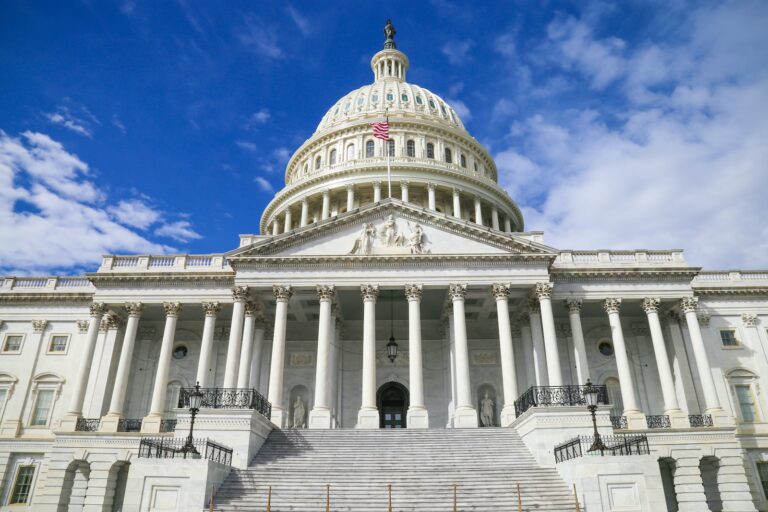Over the last two weeks, 19 governors issued their annual state of the state addresses. From an education policy standpoint, ‘state of the states’ offer an early indicator of a governor’s policy priorities, and often set the stage for big-ticket budget items. Although education rarely tops the list of federal priorities, education is a hot topic for governors often covered extensively during these addresses.
The following W/A analysis includes highlights from addresses held before January 17, 2023, where governors emphasized education as a priority.
Stay tuned! The W/A Research team will continue to update our state of the state coverage as additional addresses are made in the coming weeks.
Trending Topics
- Teacher pay and retention
- Education finance reform
- The Science of Reading
- College Affordability
- Student Mental Health
Arkansas – Sarah Huckabee Sanders (R)
“Today I will also sign an executive order preventing the political indoctrination of Arkansas’s schoolchildren. As long as I am governor, our schools will focus on the skills our children need to get ahead in the modern world – not brainwashing our children with a left-wing political agenda.”
Gov. Huckabee Sanders made it clear that she aims to be “Arkansas’ education governor.” Her platform, “L.E.A.R.N.S.” (short for literacy, empowerment, accountability, readiness, networking and school safety), covers the following:
- Literacy: Expand access to pre-K, provide reading coaches, particularly in low-income area schools, focused on the science of reading training; encourage businesses to expand early childcare centers for working families
- Empowerment: School choice for parents, “Parental Bill of Rights” style bill similar to Florida’s Parental Rights in Education Act; streamline processes to expand charter schools
- Accountability: Review educator prep and licensure requirements, review and update school and district measurement systems
- Readiness: Conduct annual audits of Arkansas’ career pathways
- Networking: Support the Department of Commerce’s efforts to expand broadband statewide
- Safety: Ensure districts have school safety oversight, increase trained law enforcement and school security officers on campus
Gov. Sanders has also been busy signing executive orders in her first days in office. First related to literacy, acknowledging the majority of third-graders are not on grade level (which could have benefited from a proofread). She also signed an executive order on Critical Race Theory (CRT) that would prohibit the teaching related to CRT or any form of discrimination that might raise concerns about the indoctrination of students.
Arizona – Katie Hobbs (D)
“Despite having some of the best K-12 schools in the country, the state has failed to provide fair and adequate investment in public education in every community, leading to issues such as high teacher vacancy rates and poor infrastructure in some districts.”
Gov. Hobbs, the first Democratic governor elected in the state since 2009, prioritized teacher recruitment and retention. Arizona’s teacher attrition problem is among the worst in the nation, with one in four teachers leaving the profession. She also plans to tackle Arizona’s Aggregate Expenditure Limit, a constitutional amendment passed in 1980 that restricts spending by K-12 schools – unless legislators override the cap to expand “further than expected inflation.” Education spending is viewed by many as a barrier to reform and improvement in Arizona, and raising the cap could have a major impact on the state.
In higher education, Gov. Hobbs made a push for a sweeping expansion of the Arizona Promise Scholarship Program and the creation of the DREAMers Scholarship Program. The AZ promise Scholarship Program provides low-income students full tuition for in-state tuition. Her proposed DREAMers program would provide scholarships to students– regardless of their immigration status.
Colorado – Jared Polis (D)
“Let’s ensure that every student has access to career-connected learning while they are in high school and let’s reward those schools that are doing more to help their students succeed in the workforce and in life!”
Pre-K led the way in Governor Polis’ state of the state. He reminded Coloradans that universal pre-K registration was open for business, and urged the legislature to put forth a ballot measure to use excess from Prop EE (the CO state tax on nicotine) to fund additional opportunities for the youngest learners.
Like a number of his peers around the country, Polis called for increases in per-pupil funding and teacher pay.
Finally, the Governor proposed new investments in high-quality math curricula and training. He highlighted Colorado’s success in expanding access to college coursework, work-based learning, and apprenticeships (and a Star Wars reference).
Iowa – Kim Reynolds (R)
“It starts by making sure that every family can make the choice that this teacher and mother made: to send their child to the school that best fits their needs.”
Governor Reynolds campaigned on the importance of school choice, and her address continues to beat the drum on choice-based reforms.
In what Iowans refer to as a “ condition of the state speech”, Reynolds outlined a comprehensive education reform package, including the creation of education savings accounts that could be used to pay private school tuition. Unlike ESAs in other states, Reynolds calls for a state contribution equal to state per-pupil funding for public education.
Gov. Reynolds also highlighted success in creating new alternate pathways and continuing Iowa’s leadership in work-based learning and apprenticeships, teacher pay and retention, and a focus on Science of Reading best practices. Iowa is not currently a state that requires SoR training for teachers. (W/A Research subscribers can read more about the 30+ states with SoR laws here.)
Kansas – Laura Kelly (D)
“Four years ago, when I ran for office, I ran to be the Education Governor. After years of budget cuts and neglect, Kansas needed one. And, now, I am proud to say that for the Fourth straight year: we are fully funding our public schools.”
Gov. Kelly utilized her state of the state to highlight successes from her first term. Her first executive order of the year emphasizes the importance of early childhood education by establishing a new, Cabinet-level task force that will bring together the Kansas Departments of Education, Health and Environment, and Children and Families, along with the Kansas Children’s Cabinet and Trust Fund, in an effort to remove bureaucratic barriers and better support all children and families in their first five years.
New York – Kathy Hochul (D)
“Finally, we’re going to focus on our children. Because too many schools provide no mental health support. Our children need preventive services now to stop them from needing intensive services in the future. We aim to reduce unmet mental health needs among children by at least half in the next five years.”
After winning her first full-term election, Governor Hochul reiterated her focus on education in her state of the state, calling out student mental health and tutoring as top priorities.
She also referenced expanding college access by providing tuition assistance to part-time CUNY and SUNY students. Hochul made the commitment to fully fund “Foundation Aid,” which supports the highest-need districts with additional funds. Additionally, Hochul emphasized her commitment to affordable and accessible childcare for all families.
The Whiteboard Advisors Research team tracks state policy daily. Look out for fresh updates on state policies, and the district-level implications of state and federal legislation. You can learn more about the latest developments and our research subscription services by signing up here.



